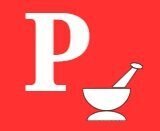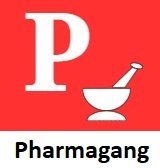Scheme and Syllabus for the post of Staff Nurse in Residential Educational Institution Societies
Scheme of Examination
Written Examination (Objective Type) No. of Questions Duration(Minutes) Marks
Paper – I General Studies and General Abilities 150 150 150
Paper-II Nursing 150 150 150
Total 300
Syllabus
Paper – I: General Studies and General Abilities
1. Current Affairs – Regional, National & International.
2. Indian Constitution; Indian Political System; Governance and Public Policy.
3. Social Exclusion; Rights issues such as Gender, Caste, Tribe, Disability etc.and inclusive policies.
4. Society Culture, Civilization Heritage, Arts and Literature of India and Telangana
5. General Science; India’s Achievements in Science and Technology
6. Environmental Issues; Disaster Management- Prevention and Mitigation Strategies and Sustainable Development.
7. Economic and Social Development of India and Telangana.
8. Socio-economic, Political and Cultural History of Telangana with special emphasis on Telangana Statehood Movement and formation of Telangana state.
9. Moral Values and Professional Ethics in Education.
10. Analytical Abilities: Logical Reasoning and Data Interpretation.
11. Basic English
Paper – II: Nursing
1. Anatomy and Physiology : Introduction to Anatonical Terms; Organization of body sells, tissues, tissues organs systems. Membranes and glands ;Skeletal System; Bones – Types, Structures, Functions; Axial Skeleton; Appendicular Skeleton; Joints – classification and Function; Muscular system; Cardio vascular system; Respiratory system; Digestive system; Excretory system; Nervous System, Reproductive System, Endocrine and Sense organs
2. Microbiology :The control and destruction of Microorganisms; Principle and Method of Microbial control ; Sterilization; Disinfection physical, Natural, Gases, Chemicals and used and preparation of lotions; Control spred of infection; Bio-safety and waste management
3. Psychology: Psychology of human behavior: Dynamics of behavior, motivation
and behavioral process
4. Fundamentals of Nursing: Pharmacology; Administration of Drugs, Classification, Action, dosage of drugs, basic needs and care in special conditions: Case of patient with fever, unconscious patent, patent with fluid in balance, patent with :dyspnoea, care of physically handicapped: therapeutic diet in sick patient
5. First Aid in Emergency situations: Fire, Burns, Fractures accidents. Poisoning, drowning, insect bites, Foreign bodies, bandaging and splinting.
6. Community Health Nursing Process: Importance of the Community Health Nursing process; Community identification, planning and Community Health Nursing care services; Immunization; Purpose and principles of Home visiting:;Early detection and management (minor ailments); Environmental factors contributing to Health Water; Safe, uses of water, waste, housing, noise.
7. Normal dietary requirements and deficiency diseases of each of the constituents of food: The Caloric, Balanced diet. Recommended daily allowances; Method of calculating normal food requirements; Low cost menu;
Diseases caused by deficiency of protein, fat, carbohydrates, minerals and vitamins
8. Medical Surgical Nursing Assessment : Health Assessment; Physical Examination; General clinical investigations ; Pre and post operative management of the patient immediate and routine; Post operative complications; Nursing management of patient with – Respiratory, Gastro
,Intestinal , Genito, Urinary, Renal, Neurological, Connective tissues, Endocrinal AND Cardiovascular problems.; Role of a Nurse in emergency conditions
9. Medical Surgical Nursing II- Nursing management of patient with disorder and diseases of – Eye, Ear, Nose, Throat, Communicable diseases ; Oncological Nursing Management : Chemo Therapy; Radiation and Radical Surgery; Emergency and disaster Nursing
10. Mental Health and Psychiatric Nursing: Definition, Etiology signs and symptoms, Medical and Surgical Management of Mental Disorders; Psychiatric Nursing Management: Definition. Principles of Psychiatric Nursing. Therapeutic nurse patient relationship.
11. Pediatric Nursing (Child Health) :The Health child –Infant, toddles, pre schools. School age, adolescent :Behavioral disorders and Common Health problem during childhood their prevention, Medical and Nursing Management: Infancy ; Early childhood; Middle childhood and Later childhood
12. Midwifery and Gynecological Nursing: Genitourinary system of male and female reproductive system; Menstrual Cycle; Nursing Management & Pregnant Women – Physiological changes in pregnancy, signs and symptoms and investigations of pregnancy; Disorders of Menstruation – Amenorrhea, dysmenorrhea
13. Community Health Nursing II: Specialized Community Health Services and Nurses Role; School Health services; Geriatric Nursing; Demography, and family welfare; Vital Health statistics
14. Professional trends and adjustments: Legislation in Nursing; Legal Hazards in Nursing; Health laws and regulations effective Nursing in India
15. Administration and ward Management: Elements and principles of Administration.

